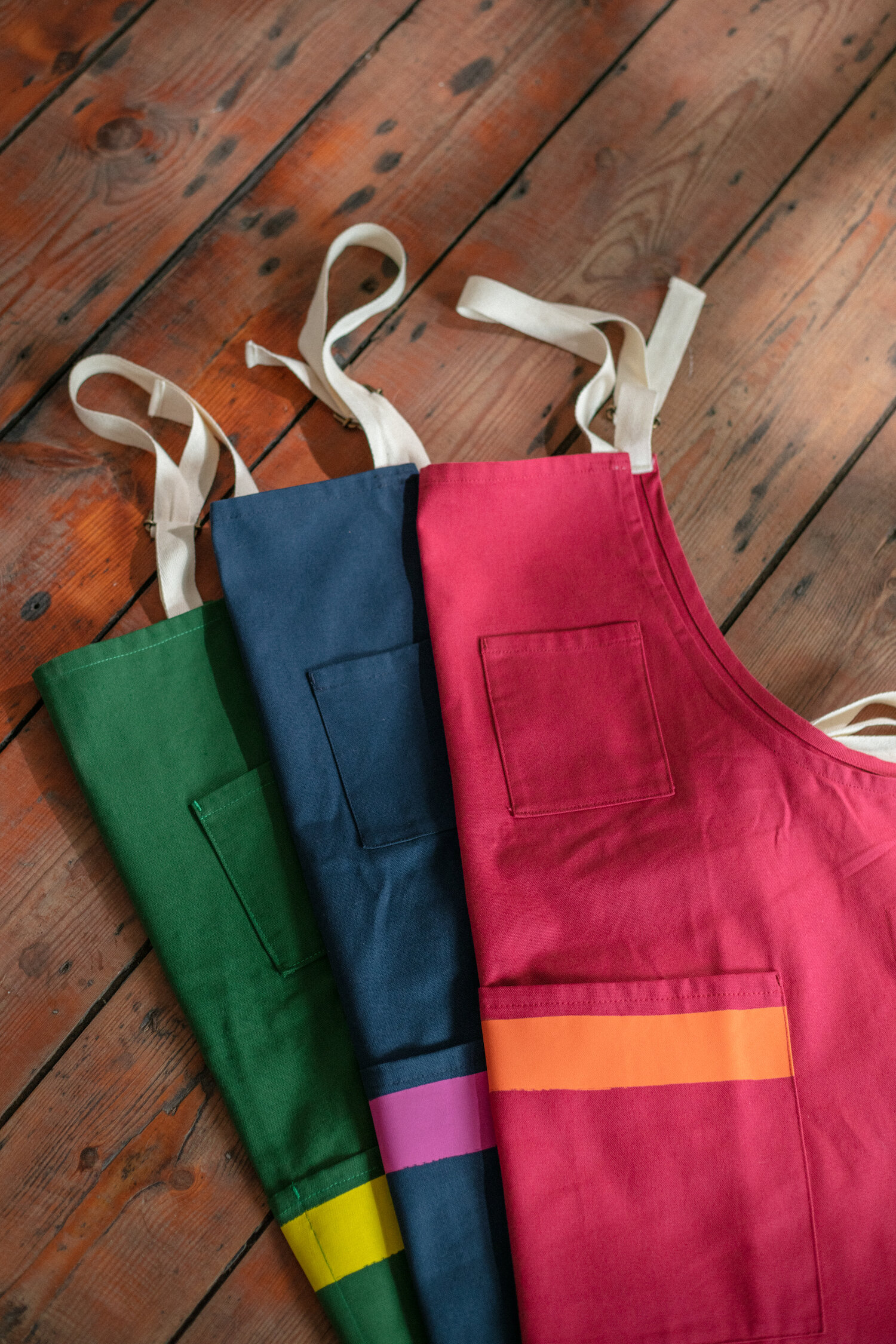Workhouse England
Iggi and his team of skilled craftsmen, constructed our Workwear Jackets from their small workshop in Suffolk.
Workhouse England is an authentically British brand that value heritage skills and support small-scale British manufacturing.
We speak to Iggi about the value of small scale production and local supply chains.
Workhouse England Some Good Ideas: When was Workhouse England established and what brought you on the journey to be high-quality British workwear manufacturers?
Iggi, Workhouse England: We started Workhouse England in 2015, we had bought a Victorian slaughterhouse in Suffolk and worked alongside craftsmen to restore it. But I began making clothes over twenty years ago. In 1989 I was making clothes from my father’s garage and selling them at Camden Market which led to showing them elsewhere in London and then Paris.
As the business grew, I went to Portugal to source production, I started to work with specialised factories in and around Oporto, Portugal and for some years it was very good. But it soon became difficult to work in Portugal, as we found our orders were never big enough for the factories. They became later and later with their deliveries and they were making mistakes. They once made a production of jackets using the wrong side of the cloth. It is hard to monitor the quality from afar.
We were forced to take extra production to their meet minimums, which left us with ever-growing quantities of stock.
I left Portugal and began to ask around in London for suitable garment makers. My business had shrunk, and my quantities were small, I needed small workshops, not big factories.
Eventually, I was introduced to a man called Colla. He had come to England from Bangladesh in the late 70s and had set up his factory in Brick Lane. He knew everyone and soon I was introduced to a factory that was not making for any famous British brands, but they were nice people and they were proud of what they were doing and showed care. At that time, we started to get orders again from Japan and we taught the factory how to make clothes that were to the exacting standards of Japan. They were willing to learn.
“We were forced to take extra production to their meet minimums, which left us with ever-growing quantities of stock.”
SGI: Where does your inspiration come from?
Iggi: Inspiration can really come from anywhere. For Workhouse England, we were drawn to images of Victorian street traders and musicians and what they wore. Whether a distinctive jacket or a favourite hat, the garments were ‘formal’ worn informally, old with new, contrasting fabrics and textures, all worn with a certain swagger. We wanted to craft garments that captured this.
SGI: How do you ensure the quality and longevity of the pieces?
Iggi: It's important for us to do our research when we explore historical fashions; to tell as much of the story as possible behind the garments and hope that it comes through in the collection.
The quality of the pieces is down to constant conversations with the makers. Installing quality control methods and being right next to the sample machinist when making a sample. This way I can direct the construction methods, the stitch colour, the button positions and correct any of the methods according to the cloth and the way it behaves.
“It is important to make each garment feel British, this authenticity and essence can only be achieved by making the garments here in Britain.”
SGI: All of your garment production is done in-house, can you explain a little about the benefits of that?
Iggi: Making things in house allows us to be flexible and to completely oversee the quality of each piece. No item is left unchecked and each is a testament to the skill and craftsmanship of our workers.
SGI: Why have you chosen to work specifically with British-made fabrics?
Iggi: It began as it was a great deal easier to buy English cloth since we sourced stock fabrics and the deliveries were quicker than buying from Italy or Portugal. When you visit fabric shows in the U.K. you can find cotton, wool and waxed fabrics all of enormously different qualities, we look for stock that has its own story, worthy of the inspiration behind the design.
It is important to make each garment feel British, this authenticity and essence can only be achieved by making the garments here in Britain.
SGI: Can you give an example of how you support local supply chains?
Iggi: We support local supply chains by buying British cloth and trimmings wherever possible. Our bindings are from Leicester, the linings from London, our card swing tickets are from Suffolk, we hand stamp them in our studio and each piece is individually numbered by hand. It’s about forming relationships and working together.














